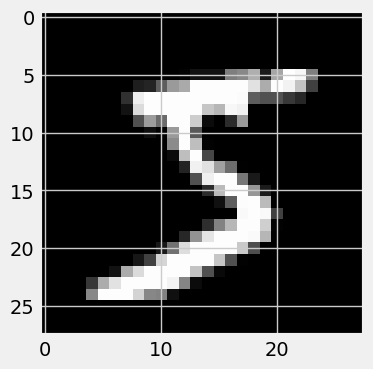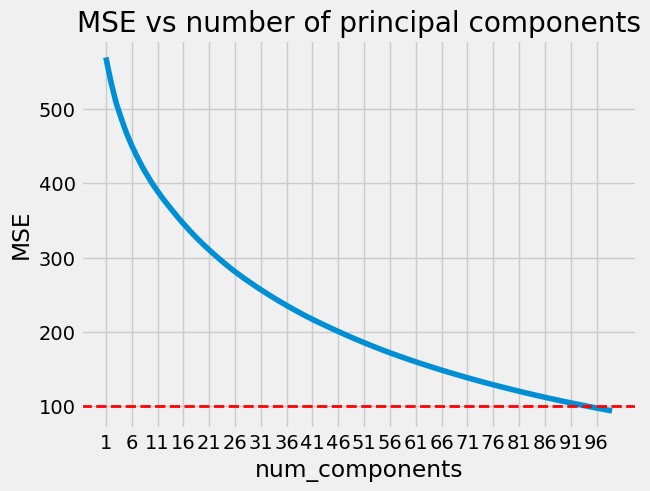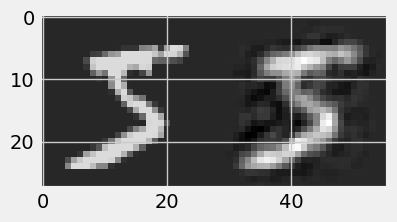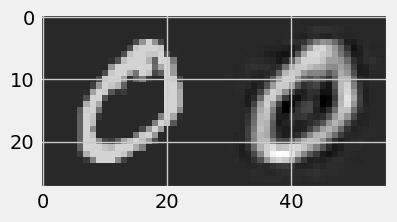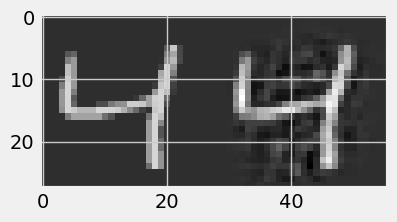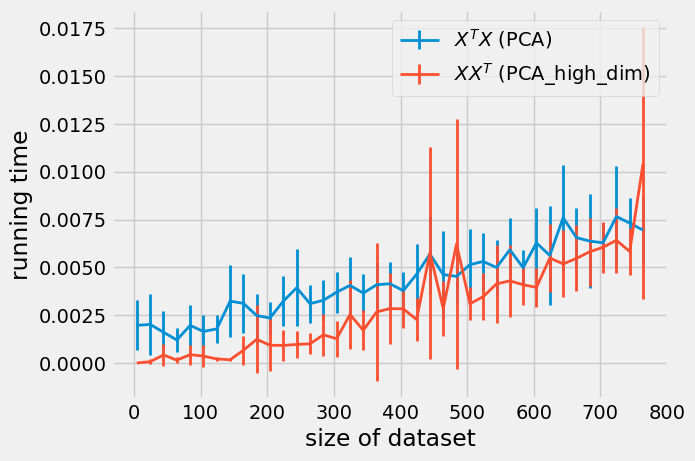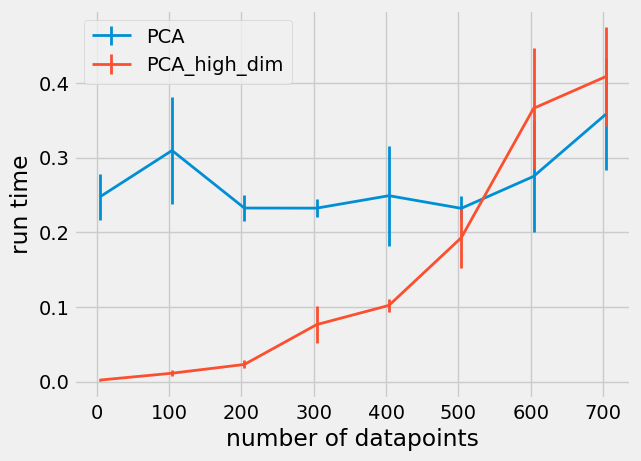!pip install numpy
!pip install timeit
!pip install matplotlib
!pip install ipywidgets
!pip install scikit-learnRequirement already satisfied: numpy in /opt/anaconda3/lib/python3.12/site-packages (1.26.4)
ERROR: Could not find a version that satisfies the requirement timeit (from versions: none)
ERROR: No matching distribution found for timeit
Requirement already satisfied: matplotlib in /opt/anaconda3/lib/python3.12/site-packages (3.9.2)
Requirement already satisfied: contourpy>=1.0.1 in /opt/anaconda3/lib/python3.12/site-packages (from matplotlib) (1.2.0)
Requirement already satisfied: cycler>=0.10 in /opt/anaconda3/lib/python3.12/site-packages (from matplotlib) (0.11.0)
Requirement already satisfied: fonttools>=4.22.0 in /opt/anaconda3/lib/python3.12/site-packages (from matplotlib) (4.51.0)
Requirement already satisfied: kiwisolver>=1.3.1 in /opt/anaconda3/lib/python3.12/site-packages (from matplotlib) (1.4.4)
Requirement already satisfied: numpy>=1.23 in /opt/anaconda3/lib/python3.12/site-packages (from matplotlib) (1.26.4)
Requirement already satisfied: packaging>=20.0 in /opt/anaconda3/lib/python3.12/site-packages (from matplotlib) (24.1)
Requirement already satisfied: pillow>=8 in /opt/anaconda3/lib/python3.12/site-packages (from matplotlib) (10.4.0)
Requirement already satisfied: pyparsing>=2.3.1 in /opt/anaconda3/lib/python3.12/site-packages (from matplotlib) (3.1.2)
Requirement already satisfied: python-dateutil>=2.7 in /opt/anaconda3/lib/python3.12/site-packages (from matplotlib) (2.9.0.post0)
Requirement already satisfied: six>=1.5 in /opt/anaconda3/lib/python3.12/site-packages (from python-dateutil>=2.7->matplotlib) (1.16.0)
Requirement already satisfied: ipywidgets in /opt/anaconda3/lib/python3.12/site-packages (7.8.1)
Requirement already satisfied: comm>=0.1.3 in /opt/anaconda3/lib/python3.12/site-packages (from ipywidgets) (0.2.1)
Requirement already satisfied: ipython-genutils~=0.2.0 in /opt/anaconda3/lib/python3.12/site-packages (from ipywidgets) (0.2.0)
Requirement already satisfied: traitlets>=4.3.1 in /opt/anaconda3/lib/python3.12/site-packages (from ipywidgets) (5.14.3)
Requirement already satisfied: widgetsnbextension~=3.6.6 in /opt/anaconda3/lib/python3.12/site-packages (from ipywidgets) (3.6.6)
Requirement already satisfied: ipython>=4.0.0 in /opt/anaconda3/lib/python3.12/site-packages (from ipywidgets) (8.27.0)
Requirement already satisfied: jupyterlab-widgets<3,>=1.0.0 in /opt/anaconda3/lib/python3.12/site-packages (from ipywidgets) (1.0.0)
Requirement already satisfied: decorator in /opt/anaconda3/lib/python3.12/site-packages (from ipython>=4.0.0->ipywidgets) (5.1.1)
Requirement already satisfied: jedi>=0.16 in /opt/anaconda3/lib/python3.12/site-packages (from ipython>=4.0.0->ipywidgets) (0.19.1)
Requirement already satisfied: matplotlib-inline in /opt/anaconda3/lib/python3.12/site-packages (from ipython>=4.0.0->ipywidgets) (0.1.6)
Requirement already satisfied: prompt-toolkit<3.1.0,>=3.0.41 in /opt/anaconda3/lib/python3.12/site-packages (from ipython>=4.0.0->ipywidgets) (3.0.43)
Requirement already satisfied: pygments>=2.4.0 in /opt/anaconda3/lib/python3.12/site-packages (from ipython>=4.0.0->ipywidgets) (2.15.1)
Requirement already satisfied: stack-data in /opt/anaconda3/lib/python3.12/site-packages (from ipython>=4.0.0->ipywidgets) (0.2.0)
Requirement already satisfied: pexpect>4.3 in /opt/anaconda3/lib/python3.12/site-packages (from ipython>=4.0.0->ipywidgets) (4.8.0)
Requirement already satisfied: notebook>=4.4.1 in /opt/anaconda3/lib/python3.12/site-packages (from widgetsnbextension~=3.6.6->ipywidgets) (7.2.2)
Requirement already satisfied: parso<0.9.0,>=0.8.3 in /opt/anaconda3/lib/python3.12/site-packages (from jedi>=0.16->ipython>=4.0.0->ipywidgets) (0.8.3)
Requirement already satisfied: jupyter-server<3,>=2.4.0 in /opt/anaconda3/lib/python3.12/site-packages (from notebook>=4.4.1->widgetsnbextension~=3.6.6->ipywidgets) (2.14.1)
Requirement already satisfied: jupyterlab-server<3,>=2.27.1 in /opt/anaconda3/lib/python3.12/site-packages (from notebook>=4.4.1->widgetsnbextension~=3.6.6->ipywidgets) (2.27.3)
Requirement already satisfied: jupyterlab<4.3,>=4.2.0 in /opt/anaconda3/lib/python3.12/site-packages (from notebook>=4.4.1->widgetsnbextension~=3.6.6->ipywidgets) (4.2.5)
Requirement already satisfied: notebook-shim<0.3,>=0.2 in /opt/anaconda3/lib/python3.12/site-packages (from notebook>=4.4.1->widgetsnbextension~=3.6.6->ipywidgets) (0.2.3)
Requirement already satisfied: tornado>=6.2.0 in /opt/anaconda3/lib/python3.12/site-packages (from notebook>=4.4.1->widgetsnbextension~=3.6.6->ipywidgets) (6.4.1)
Requirement already satisfied: ptyprocess>=0.5 in /opt/anaconda3/lib/python3.12/site-packages (from pexpect>4.3->ipython>=4.0.0->ipywidgets) (0.7.0)
Requirement already satisfied: wcwidth in /opt/anaconda3/lib/python3.12/site-packages (from prompt-toolkit<3.1.0,>=3.0.41->ipython>=4.0.0->ipywidgets) (0.2.5)
Requirement already satisfied: executing in /opt/anaconda3/lib/python3.12/site-packages (from stack-data->ipython>=4.0.0->ipywidgets) (0.8.3)
Requirement already satisfied: asttokens in /opt/anaconda3/lib/python3.12/site-packages (from stack-data->ipython>=4.0.0->ipywidgets) (2.0.5)
Requirement already satisfied: pure-eval in /opt/anaconda3/lib/python3.12/site-packages (from stack-data->ipython>=4.0.0->ipywidgets) (0.2.2)
Requirement already satisfied: anyio>=3.1.0 in /opt/anaconda3/lib/python3.12/site-packages (from jupyter-server<3,>=2.4.0->notebook>=4.4.1->widgetsnbextension~=3.6.6->ipywidgets) (4.2.0)
Requirement already satisfied: argon2-cffi>=21.1 in /opt/anaconda3/lib/python3.12/site-packages (from jupyter-server<3,>=2.4.0->notebook>=4.4.1->widgetsnbextension~=3.6.6->ipywidgets) (21.3.0)
Requirement already satisfied: jinja2>=3.0.3 in /opt/anaconda3/lib/python3.12/site-packages (from jupyter-server<3,>=2.4.0->notebook>=4.4.1->widgetsnbextension~=3.6.6->ipywidgets) (3.1.4)
Requirement already satisfied: jupyter-client>=7.4.4 in /opt/anaconda3/lib/python3.12/site-packages (from jupyter-server<3,>=2.4.0->notebook>=4.4.1->widgetsnbextension~=3.6.6->ipywidgets) (8.6.0)
Requirement already satisfied: jupyter-core!=5.0.*,>=4.12 in /opt/anaconda3/lib/python3.12/site-packages (from jupyter-server<3,>=2.4.0->notebook>=4.4.1->widgetsnbextension~=3.6.6->ipywidgets) (5.7.2)
Requirement already satisfied: jupyter-events>=0.9.0 in /opt/anaconda3/lib/python3.12/site-packages (from jupyter-server<3,>=2.4.0->notebook>=4.4.1->widgetsnbextension~=3.6.6->ipywidgets) (0.10.0)
Requirement already satisfied: jupyter-server-terminals>=0.4.4 in /opt/anaconda3/lib/python3.12/site-packages (from jupyter-server<3,>=2.4.0->notebook>=4.4.1->widgetsnbextension~=3.6.6->ipywidgets) (0.4.4)
Requirement already satisfied: nbconvert>=6.4.4 in /opt/anaconda3/lib/python3.12/site-packages (from jupyter-server<3,>=2.4.0->notebook>=4.4.1->widgetsnbextension~=3.6.6->ipywidgets) (7.16.4)
Requirement already satisfied: nbformat>=5.3.0 in /opt/anaconda3/lib/python3.12/site-packages (from jupyter-server<3,>=2.4.0->notebook>=4.4.1->widgetsnbextension~=3.6.6->ipywidgets) (5.10.4)
Requirement already satisfied: overrides>=5.0 in /opt/anaconda3/lib/python3.12/site-packages (from jupyter-server<3,>=2.4.0->notebook>=4.4.1->widgetsnbextension~=3.6.6->ipywidgets) (7.4.0)
Requirement already satisfied: packaging>=22.0 in /opt/anaconda3/lib/python3.12/site-packages (from jupyter-server<3,>=2.4.0->notebook>=4.4.1->widgetsnbextension~=3.6.6->ipywidgets) (24.1)
Requirement already satisfied: prometheus-client>=0.9 in /opt/anaconda3/lib/python3.12/site-packages (from jupyter-server<3,>=2.4.0->notebook>=4.4.1->widgetsnbextension~=3.6.6->ipywidgets) (0.14.1)
Requirement already satisfied: pyzmq>=24 in /opt/anaconda3/lib/python3.12/site-packages (from jupyter-server<3,>=2.4.0->notebook>=4.4.1->widgetsnbextension~=3.6.6->ipywidgets) (25.1.2)
Requirement already satisfied: send2trash>=1.8.2 in /opt/anaconda3/lib/python3.12/site-packages (from jupyter-server<3,>=2.4.0->notebook>=4.4.1->widgetsnbextension~=3.6.6->ipywidgets) (1.8.2)
Requirement already satisfied: terminado>=0.8.3 in /opt/anaconda3/lib/python3.12/site-packages (from jupyter-server<3,>=2.4.0->notebook>=4.4.1->widgetsnbextension~=3.6.6->ipywidgets) (0.17.1)
Requirement already satisfied: websocket-client>=1.7 in /opt/anaconda3/lib/python3.12/site-packages (from jupyter-server<3,>=2.4.0->notebook>=4.4.1->widgetsnbextension~=3.6.6->ipywidgets) (1.8.0)
Requirement already satisfied: async-lru>=1.0.0 in /opt/anaconda3/lib/python3.12/site-packages (from jupyterlab<4.3,>=4.2.0->notebook>=4.4.1->widgetsnbextension~=3.6.6->ipywidgets) (2.0.4)
Requirement already satisfied: httpx>=0.25.0 in /opt/anaconda3/lib/python3.12/site-packages (from jupyterlab<4.3,>=4.2.0->notebook>=4.4.1->widgetsnbextension~=3.6.6->ipywidgets) (0.27.0)
Requirement already satisfied: ipykernel>=6.5.0 in /opt/anaconda3/lib/python3.12/site-packages (from jupyterlab<4.3,>=4.2.0->notebook>=4.4.1->widgetsnbextension~=3.6.6->ipywidgets) (6.28.0)
Requirement already satisfied: jupyter-lsp>=2.0.0 in /opt/anaconda3/lib/python3.12/site-packages (from jupyterlab<4.3,>=4.2.0->notebook>=4.4.1->widgetsnbextension~=3.6.6->ipywidgets) (2.2.0)
Requirement already satisfied: setuptools>=40.1.0 in /opt/anaconda3/lib/python3.12/site-packages (from jupyterlab<4.3,>=4.2.0->notebook>=4.4.1->widgetsnbextension~=3.6.6->ipywidgets) (75.1.0)
Requirement already satisfied: babel>=2.10 in /opt/anaconda3/lib/python3.12/site-packages (from jupyterlab-server<3,>=2.27.1->notebook>=4.4.1->widgetsnbextension~=3.6.6->ipywidgets) (2.11.0)
Requirement already satisfied: json5>=0.9.0 in /opt/anaconda3/lib/python3.12/site-packages (from jupyterlab-server<3,>=2.27.1->notebook>=4.4.1->widgetsnbextension~=3.6.6->ipywidgets) (0.9.6)
Requirement already satisfied: jsonschema>=4.18.0 in /opt/anaconda3/lib/python3.12/site-packages (from jupyterlab-server<3,>=2.27.1->notebook>=4.4.1->widgetsnbextension~=3.6.6->ipywidgets) (4.23.0)
Requirement already satisfied: requests>=2.31 in /opt/anaconda3/lib/python3.12/site-packages (from jupyterlab-server<3,>=2.27.1->notebook>=4.4.1->widgetsnbextension~=3.6.6->ipywidgets) (2.32.3)
Requirement already satisfied: six in /opt/anaconda3/lib/python3.12/site-packages (from asttokens->stack-data->ipython>=4.0.0->ipywidgets) (1.16.0)
Requirement already satisfied: idna>=2.8 in /opt/anaconda3/lib/python3.12/site-packages (from anyio>=3.1.0->jupyter-server<3,>=2.4.0->notebook>=4.4.1->widgetsnbextension~=3.6.6->ipywidgets) (3.7)
Requirement already satisfied: sniffio>=1.1 in /opt/anaconda3/lib/python3.12/site-packages (from anyio>=3.1.0->jupyter-server<3,>=2.4.0->notebook>=4.4.1->widgetsnbextension~=3.6.6->ipywidgets) (1.3.0)
Requirement already satisfied: argon2-cffi-bindings in /opt/anaconda3/lib/python3.12/site-packages (from argon2-cffi>=21.1->jupyter-server<3,>=2.4.0->notebook>=4.4.1->widgetsnbextension~=3.6.6->ipywidgets) (21.2.0)
Requirement already satisfied: pytz>=2015.7 in /opt/anaconda3/lib/python3.12/site-packages (from babel>=2.10->jupyterlab-server<3,>=2.27.1->notebook>=4.4.1->widgetsnbextension~=3.6.6->ipywidgets) (2024.1)
Requirement already satisfied: certifi in /opt/anaconda3/lib/python3.12/site-packages (from httpx>=0.25.0->jupyterlab<4.3,>=4.2.0->notebook>=4.4.1->widgetsnbextension~=3.6.6->ipywidgets) (2024.8.30)
Requirement already satisfied: httpcore==1.* in /opt/anaconda3/lib/python3.12/site-packages (from httpx>=0.25.0->jupyterlab<4.3,>=4.2.0->notebook>=4.4.1->widgetsnbextension~=3.6.6->ipywidgets) (1.0.2)
Requirement already satisfied: h11<0.15,>=0.13 in /opt/anaconda3/lib/python3.12/site-packages (from httpcore==1.*->httpx>=0.25.0->jupyterlab<4.3,>=4.2.0->notebook>=4.4.1->widgetsnbextension~=3.6.6->ipywidgets) (0.14.0)
Requirement already satisfied: appnope in /opt/anaconda3/lib/python3.12/site-packages (from ipykernel>=6.5.0->jupyterlab<4.3,>=4.2.0->notebook>=4.4.1->widgetsnbextension~=3.6.6->ipywidgets) (0.1.3)
Requirement already satisfied: debugpy>=1.6.5 in /opt/anaconda3/lib/python3.12/site-packages (from ipykernel>=6.5.0->jupyterlab<4.3,>=4.2.0->notebook>=4.4.1->widgetsnbextension~=3.6.6->ipywidgets) (1.6.7)
Requirement already satisfied: nest-asyncio in /opt/anaconda3/lib/python3.12/site-packages (from ipykernel>=6.5.0->jupyterlab<4.3,>=4.2.0->notebook>=4.4.1->widgetsnbextension~=3.6.6->ipywidgets) (1.6.0)
Requirement already satisfied: psutil in /opt/anaconda3/lib/python3.12/site-packages (from ipykernel>=6.5.0->jupyterlab<4.3,>=4.2.0->notebook>=4.4.1->widgetsnbextension~=3.6.6->ipywidgets) (5.9.0)
Requirement already satisfied: MarkupSafe>=2.0 in /opt/anaconda3/lib/python3.12/site-packages (from jinja2>=3.0.3->jupyter-server<3,>=2.4.0->notebook>=4.4.1->widgetsnbextension~=3.6.6->ipywidgets) (2.1.3)
Requirement already satisfied: attrs>=22.2.0 in /opt/anaconda3/lib/python3.12/site-packages (from jsonschema>=4.18.0->jupyterlab-server<3,>=2.27.1->notebook>=4.4.1->widgetsnbextension~=3.6.6->ipywidgets) (23.1.0)
Requirement already satisfied: jsonschema-specifications>=2023.03.6 in /opt/anaconda3/lib/python3.12/site-packages (from jsonschema>=4.18.0->jupyterlab-server<3,>=2.27.1->notebook>=4.4.1->widgetsnbextension~=3.6.6->ipywidgets) (2023.7.1)
Requirement already satisfied: referencing>=0.28.4 in /opt/anaconda3/lib/python3.12/site-packages (from jsonschema>=4.18.0->jupyterlab-server<3,>=2.27.1->notebook>=4.4.1->widgetsnbextension~=3.6.6->ipywidgets) (0.30.2)
Requirement already satisfied: rpds-py>=0.7.1 in /opt/anaconda3/lib/python3.12/site-packages (from jsonschema>=4.18.0->jupyterlab-server<3,>=2.27.1->notebook>=4.4.1->widgetsnbextension~=3.6.6->ipywidgets) (0.10.6)
Requirement already satisfied: python-dateutil>=2.8.2 in /opt/anaconda3/lib/python3.12/site-packages (from jupyter-client>=7.4.4->jupyter-server<3,>=2.4.0->notebook>=4.4.1->widgetsnbextension~=3.6.6->ipywidgets) (2.9.0.post0)
Requirement already satisfied: platformdirs>=2.5 in /opt/anaconda3/lib/python3.12/site-packages (from jupyter-core!=5.0.*,>=4.12->jupyter-server<3,>=2.4.0->notebook>=4.4.1->widgetsnbextension~=3.6.6->ipywidgets) (3.10.0)
Requirement already satisfied: python-json-logger>=2.0.4 in /opt/anaconda3/lib/python3.12/site-packages (from jupyter-events>=0.9.0->jupyter-server<3,>=2.4.0->notebook>=4.4.1->widgetsnbextension~=3.6.6->ipywidgets) (2.0.7)
Requirement already satisfied: pyyaml>=5.3 in /opt/anaconda3/lib/python3.12/site-packages (from jupyter-events>=0.9.0->jupyter-server<3,>=2.4.0->notebook>=4.4.1->widgetsnbextension~=3.6.6->ipywidgets) (6.0.1)
Requirement already satisfied: rfc3339-validator in /opt/anaconda3/lib/python3.12/site-packages (from jupyter-events>=0.9.0->jupyter-server<3,>=2.4.0->notebook>=4.4.1->widgetsnbextension~=3.6.6->ipywidgets) (0.1.4)
Requirement already satisfied: rfc3986-validator>=0.1.1 in /opt/anaconda3/lib/python3.12/site-packages (from jupyter-events>=0.9.0->jupyter-server<3,>=2.4.0->notebook>=4.4.1->widgetsnbextension~=3.6.6->ipywidgets) (0.1.1)
Requirement already satisfied: beautifulsoup4 in /opt/anaconda3/lib/python3.12/site-packages (from nbconvert>=6.4.4->jupyter-server<3,>=2.4.0->notebook>=4.4.1->widgetsnbextension~=3.6.6->ipywidgets) (4.12.3)
Requirement already satisfied: bleach!=5.0.0 in /opt/anaconda3/lib/python3.12/site-packages (from nbconvert>=6.4.4->jupyter-server<3,>=2.4.0->notebook>=4.4.1->widgetsnbextension~=3.6.6->ipywidgets) (4.1.0)
Requirement already satisfied: defusedxml in /opt/anaconda3/lib/python3.12/site-packages (from nbconvert>=6.4.4->jupyter-server<3,>=2.4.0->notebook>=4.4.1->widgetsnbextension~=3.6.6->ipywidgets) (0.7.1)
Requirement already satisfied: jupyterlab-pygments in /opt/anaconda3/lib/python3.12/site-packages (from nbconvert>=6.4.4->jupyter-server<3,>=2.4.0->notebook>=4.4.1->widgetsnbextension~=3.6.6->ipywidgets) (0.1.2)
Requirement already satisfied: mistune<4,>=2.0.3 in /opt/anaconda3/lib/python3.12/site-packages (from nbconvert>=6.4.4->jupyter-server<3,>=2.4.0->notebook>=4.4.1->widgetsnbextension~=3.6.6->ipywidgets) (2.0.4)
Requirement already satisfied: nbclient>=0.5.0 in /opt/anaconda3/lib/python3.12/site-packages (from nbconvert>=6.4.4->jupyter-server<3,>=2.4.0->notebook>=4.4.1->widgetsnbextension~=3.6.6->ipywidgets) (0.8.0)
Requirement already satisfied: pandocfilters>=1.4.1 in /opt/anaconda3/lib/python3.12/site-packages (from nbconvert>=6.4.4->jupyter-server<3,>=2.4.0->notebook>=4.4.1->widgetsnbextension~=3.6.6->ipywidgets) (1.5.0)
Requirement already satisfied: tinycss2 in /opt/anaconda3/lib/python3.12/site-packages (from nbconvert>=6.4.4->jupyter-server<3,>=2.4.0->notebook>=4.4.1->widgetsnbextension~=3.6.6->ipywidgets) (1.2.1)
Requirement already satisfied: fastjsonschema>=2.15 in /opt/anaconda3/lib/python3.12/site-packages (from nbformat>=5.3.0->jupyter-server<3,>=2.4.0->notebook>=4.4.1->widgetsnbextension~=3.6.6->ipywidgets) (2.16.2)
Requirement already satisfied: charset-normalizer<4,>=2 in /opt/anaconda3/lib/python3.12/site-packages (from requests>=2.31->jupyterlab-server<3,>=2.27.1->notebook>=4.4.1->widgetsnbextension~=3.6.6->ipywidgets) (3.3.2)
Requirement already satisfied: urllib3<3,>=1.21.1 in /opt/anaconda3/lib/python3.12/site-packages (from requests>=2.31->jupyterlab-server<3,>=2.27.1->notebook>=4.4.1->widgetsnbextension~=3.6.6->ipywidgets) (2.2.3)
Requirement already satisfied: webencodings in /opt/anaconda3/lib/python3.12/site-packages (from bleach!=5.0.0->nbconvert>=6.4.4->jupyter-server<3,>=2.4.0->notebook>=4.4.1->widgetsnbextension~=3.6.6->ipywidgets) (0.5.1)
Requirement already satisfied: fqdn in /opt/anaconda3/lib/python3.12/site-packages (from jsonschema[format-nongpl]>=4.18.0->jupyter-events>=0.9.0->jupyter-server<3,>=2.4.0->notebook>=4.4.1->widgetsnbextension~=3.6.6->ipywidgets) (1.5.1)
Requirement already satisfied: isoduration in /opt/anaconda3/lib/python3.12/site-packages (from jsonschema[format-nongpl]>=4.18.0->jupyter-events>=0.9.0->jupyter-server<3,>=2.4.0->notebook>=4.4.1->widgetsnbextension~=3.6.6->ipywidgets) (20.11.0)
Requirement already satisfied: jsonpointer>1.13 in /opt/anaconda3/lib/python3.12/site-packages (from jsonschema[format-nongpl]>=4.18.0->jupyter-events>=0.9.0->jupyter-server<3,>=2.4.0->notebook>=4.4.1->widgetsnbextension~=3.6.6->ipywidgets) (2.1)
Requirement already satisfied: uri-template in /opt/anaconda3/lib/python3.12/site-packages (from jsonschema[format-nongpl]>=4.18.0->jupyter-events>=0.9.0->jupyter-server<3,>=2.4.0->notebook>=4.4.1->widgetsnbextension~=3.6.6->ipywidgets) (1.3.0)
Requirement already satisfied: webcolors>=24.6.0 in /opt/anaconda3/lib/python3.12/site-packages (from jsonschema[format-nongpl]>=4.18.0->jupyter-events>=0.9.0->jupyter-server<3,>=2.4.0->notebook>=4.4.1->widgetsnbextension~=3.6.6->ipywidgets) (24.11.1)
Requirement already satisfied: cffi>=1.0.1 in /opt/anaconda3/lib/python3.12/site-packages (from argon2-cffi-bindings->argon2-cffi>=21.1->jupyter-server<3,>=2.4.0->notebook>=4.4.1->widgetsnbextension~=3.6.6->ipywidgets) (1.17.1)
Requirement already satisfied: soupsieve>1.2 in /opt/anaconda3/lib/python3.12/site-packages (from beautifulsoup4->nbconvert>=6.4.4->jupyter-server<3,>=2.4.0->notebook>=4.4.1->widgetsnbextension~=3.6.6->ipywidgets) (2.5)
Requirement already satisfied: pycparser in /opt/anaconda3/lib/python3.12/site-packages (from cffi>=1.0.1->argon2-cffi-bindings->argon2-cffi>=21.1->jupyter-server<3,>=2.4.0->notebook>=4.4.1->widgetsnbextension~=3.6.6->ipywidgets) (2.21)
Requirement already satisfied: arrow>=0.15.0 in /opt/anaconda3/lib/python3.12/site-packages (from isoduration->jsonschema[format-nongpl]>=4.18.0->jupyter-events>=0.9.0->jupyter-server<3,>=2.4.0->notebook>=4.4.1->widgetsnbextension~=3.6.6->ipywidgets) (1.2.3)
Requirement already satisfied: scikit-learn in /opt/anaconda3/lib/python3.12/site-packages (1.5.1)
Requirement already satisfied: numpy>=1.19.5 in /opt/anaconda3/lib/python3.12/site-packages (from scikit-learn) (1.26.4)
Requirement already satisfied: scipy>=1.6.0 in /opt/anaconda3/lib/python3.12/site-packages (from scikit-learn) (1.13.1)
Requirement already satisfied: joblib>=1.2.0 in /opt/anaconda3/lib/python3.12/site-packages (from scikit-learn) (1.4.2)
Requirement already satisfied: threadpoolctl>=3.1.0 in /opt/anaconda3/lib/python3.12/site-packages (from scikit-learn) (3.5.0)
